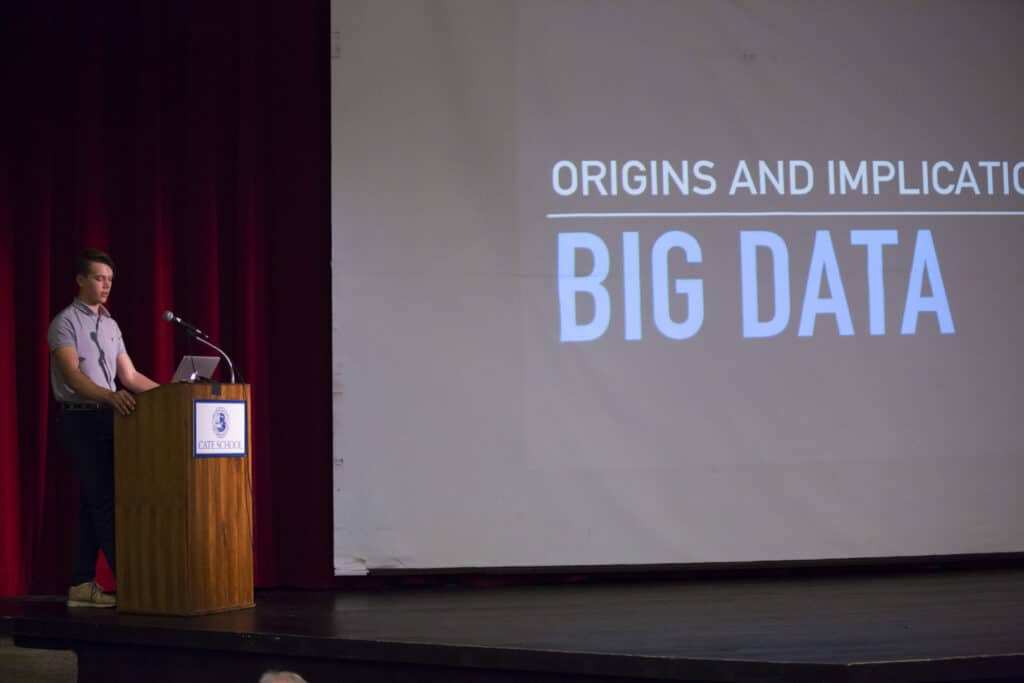Inquiry Day 2018: From Bigfoot to Big Data
May 14, 2018

The day started off in the Hitchcock Theatre, where Kathryn Antonatos ’18 discussed intersex conditions, as well as historical treatments and public perception of them. To provide context for the rate at which certain intersex conditions occur, Kathryn listed similar, relatable probabilities. For example, one condition she discussed occurs in one out of 2500 people – the enrollment of Wellesley College. At the end of the presentation, students and faculty asked questions about sex determination testing in sports, the reasons why so many intersex conditions are generally unknown, and the ethics of medical procedures carried out on minors.
Sophie Johnson discussed the phenomenon of cryptids such as Bigfoot and the Loch Ness Monster. Her research on cryptids including conspiracy theories such as the Kennedy assassination. She says theories like these are created and maintained because “They make the world simpler,” in part by “condensing the world into good guys and bad guys,” and also providing “monumental events like a presidential assassination reasoning to match.” Sophie played the original Bigfoot video, which based on the wave of excitement from the audience, shows the level of fascination and interest in cryptids. Sophie says that Americans are simultaneously intrigued by the supernatural but “assert to ourselves and others that we aren’t that invested.”
Farida Tahiry discussed the motivations for war by researching the causes of the Syrian Civil War. By starting with the Iranian Revolution she discussed the “truths” of war experienced differently by different countries. History teacher Ivan Barry asks about how wars started on ideological grounds can be prevented, to which Farida responds “Negotiation.” She says, “People want peace. In Iran, for example, people marched in support for the U.S. after 9/11. I think there is always a way to solve the problem with fewer consequences.”
Jack Rehnborg and Ian MacFarlane jointly researched the uses and implications of big data. They talked about using Palantir systems to track gang members in New Orleans and how “predictive policing” has already been rolled out in New York and Los Angeles to identify potential criminals before they commit a crime. The duo touched on the problems that can arise from big data, including the Cambridge Analytica scandal and the potential for insurance companies to analyze their enrollees DNA and deny coverage based on certain genes. They discussed current ways that big data affects us such as Amazon’s anticipatory shipping and dynamic pricing as well as the Flash Crash of 2010 caused by robo-investors inflating stock prices and selling off shares almost in sync.
Science teachers Joshua Caditz and Paul Denison spoke to the enormous effort undertaken by these seniors and how their projects are reflections of the School’s guiding principles – to encourage knowledge, curiosity, compassion, determinations, and communication.